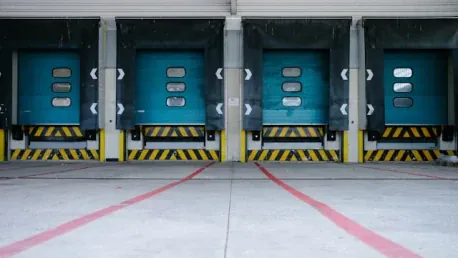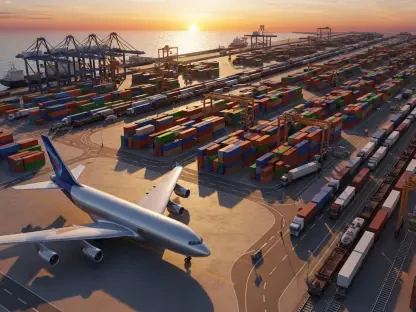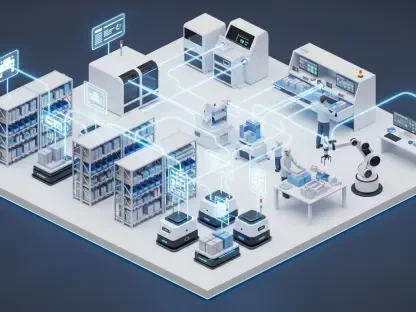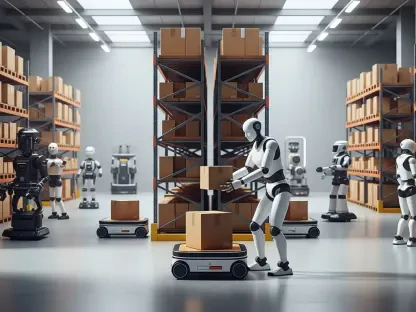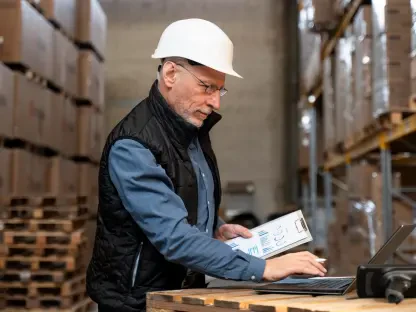The recent expansion of the partnership between logistics solutions provider OneStop and freight specialist Intermodal Group (IMG) marks a significant development at the newly operational Kenwick Intermodal Terminal (IMT) in Western Australia. IMG has implemented OneStop’s Vehicle Booking System (VBS) and Modal technology to enhance operational efficiency, container movements, and traffic flow at the terminal. The Kenwick IMT, which commenced operations recently, offers a rail service managed by Watco Australia that connects Fremantle Port’s North Quay with a capacity of 100 TEU per service. This initiative is aimed at increasing container rail volumes through North Quay Rail Terminal and the upcoming Westport, ultimately strengthening Western Australia’s metropolitan rail freight supply chain.
The introduction of VBS and Modal technology is expected to significantly streamline operations at Kenwick IMT, enabling IMG to provide an additional 2000 TEU for empty container storage. As a result of this collaboration, Kenwick IMT is anticipated to attract new shipping lines, reduce costs for transport operators, and boost efficiency in container movements, effectively positioning itself as a pivotal inland port. This enhanced capacity and efficiency promise substantial benefits not only for IMG and OneStop but for the entire logistics ecosystem in Western Australia, by facilitating smoother and more cost-effective supply chain operations.
Leveraging Advanced Technologies for Efficiency
Adam Lebihan, Vice President of Intermodal at IMG, has emphasized that their partnership with OneStop illustrates a firm commitment to leveraging innovative technologies to elevate operational efficiency and service delivery standards. The benefits provided by the integration of OneStop’s Vehicle Booking System (VBS) and Modal technology extend beyond mere efficiency improvements. These technologies offer increased visibility and reliability in intermodal container movements, which are essential for meeting the growing demands of the logistics industry. The collaboration between IMG and OneStop is not just about technological adoption; it is about creating a system that drives operational excellence and meets the strategic goals of both entities while addressing the logistical challenges faced by the industry.
The increased visibility and reliability achieved through VBS and Modal technology facilitate better planning and resource management, ultimately reducing operational costs and improving service reliability. These advancements are particularly crucial in the context of increasing container volumes and pressures to minimize turnaround times and enhance throughput. Consequently, the Kenwick IMT stands to become a model of efficiency and innovation in logistics management, setting a benchmark for other intermodal terminals across the region and beyond.
Strengthening Western Australia’s Logistics Infrastructure
The recent expansion of the partnership between logistics provider OneStop and freight specialist Intermodal Group (IMG) is a significant milestone at the newly operational Kenwick Intermodal Terminal (IMT) in Western Australia. IMG has adopted OneStop’s Vehicle Booking System (VBS) and Modal technology to boost efficiency, container movements, and traffic flow. The Kenwick IMT, which recently began operations, features a rail service managed by Watco Australia, linking Fremantle Port’s North Quay with a capacity of 100 TEU per service. This move aims to increase container rail volumes through North Quay Rail Terminal and the forthcoming Westport, enhancing Western Australia’s metropolitan rail freight supply chain.
The introduction of VBS and Modal technology will streamline operations at Kenwick IMT, allowing IMG to offer an additional 2000 TEU for empty container storage. This partnership is expected to attract new shipping lines, lower costs for transport operators, and improve efficiency in container movements, making Kenwick IMT a crucial inland port. This improved capacity and efficiency promise substantial benefits for IMG, OneStop, and the broader logistics ecosystem in Western Australia, facilitating smoother and more cost-effective supply chain operations.
